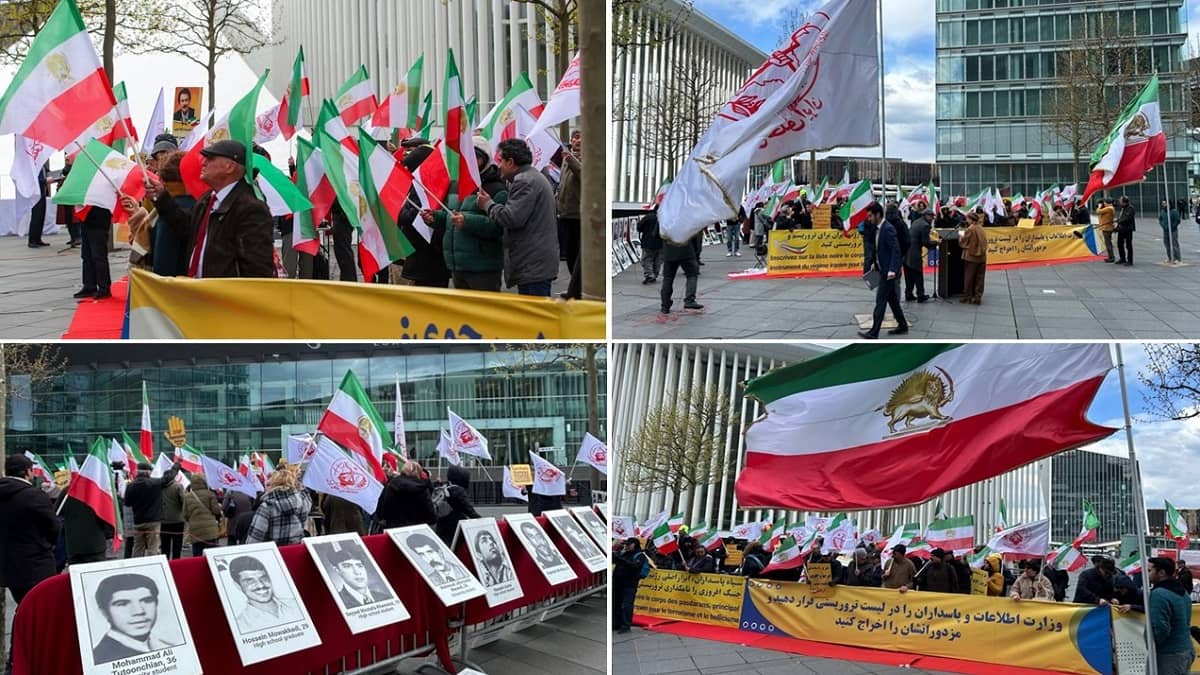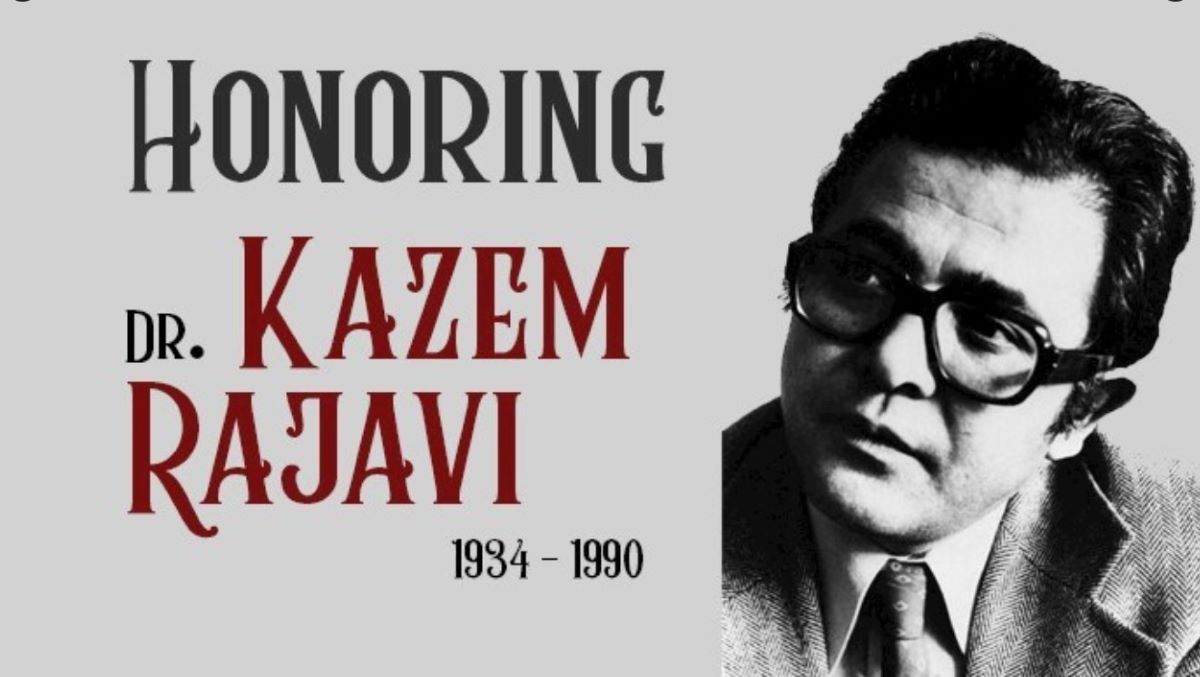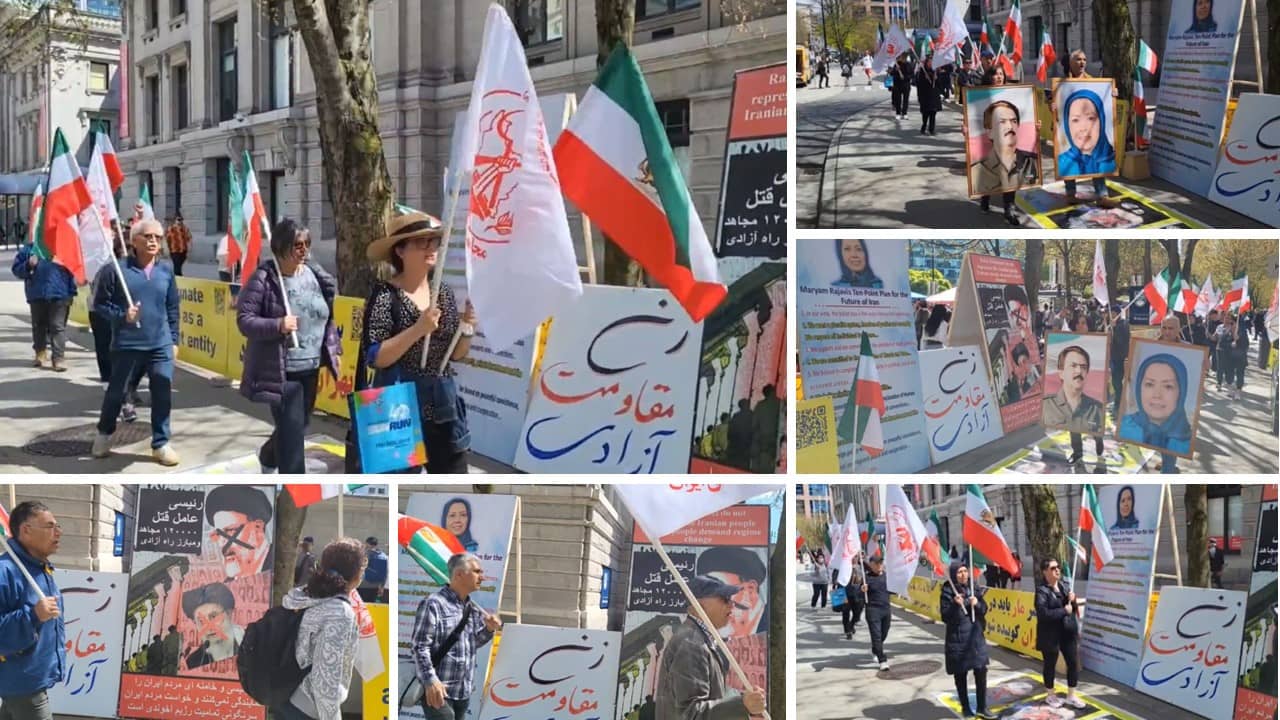Forced confession, a failed tactic for Iran’s mullahs
By Daniel Mahdavi
For Iranian mullahs, forcible confessions have become commonplace. In the first place, they ignore the basic rights of the people and bring them in front of the camera to confess to what they have not done.
Forced confessions broadcasts in Iran have been carried out by the mullahs for years for domestic uses. One of the methods used by the mullahs in prison since Ruhollah Khomeini came to power in 1979 was televised confessions or forced confessions. They executed hundreds of MEK members who refused to do that.
But forced confession in Iran over the past decade has not been for domestic consumption alone. It has become a way to cover up the crimes of the Ministry of Intelligence and the Revolutionary Guards. The mullahs also use it to cover up their crimes against the people or to lay the blame for their terrorist activities on other people or to blackmail other countries.
More than 750 people were killed in recent demonstrations in November, with 10,000 wounded and more than 4,000 injured. Two days after Khamenei, the Supreme Leader of the regime came to the scene and called the people “thugs,” the mullahs’ television channels began documenting and broadcasting forced confessions.
In the first forced confession report, the mullahs’ television in the news section of 20:30 brought a woman named Fateme Dadvand to television and claimed that she got orders from groups outside the country.
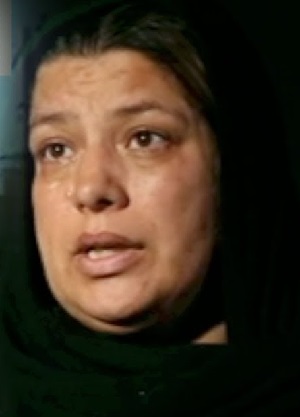
Of course, the mullahs’ television did not broadcast much of her interview, and her only sentence was that she had gone to Sulaymaniyah, Iraq, and that someone had asked her to work for his organization.
A juvenile’s confession was also broadcast on the Yazd Provincial channel, in a scenario that was similar to that of Fateme Davand.
But the most interesting part of those confessions was that of the parents of 14-year-old Nikta Espandani, who were forced to say that our daughter was not political and anti-regime. Nikta Espandani was shot in the head by security forces. This only shows the brutality of a regime that kills a 14-year-old girl and then brings her family on TV.
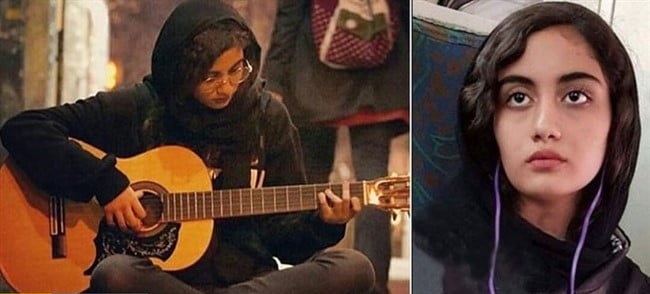
In the protests of 2009 and the arrests of many demonstrators, some of them were forced to confess in front of the camera to say they were affiliated with outside groups and had received orders from them including a young man who claimed that the Mojahedin had ordered him to make Molotov bombs.
Forced confession in Iran not only include those arrested for anti-government protests, but also have different uses for the mullahs.
On August 5, 2012, state-run television showed 14 people including 8 men and 6 women in front of the camera, who had to confess to being commanded by Israel to assassinate five Iranian nuclear scientists. Of course, they were released after two and a half years, and all said they had been forced to confess under torture.
Another man, Maziar Ebrahimi, was brought on television by the Iranian government to admit he was an Israeli government spy, a crime that, under the mullahs’ law, is punishable by death. But Maziar later stated that he was forced to confess under intense torture and the stories were fabricated by the interrogators.
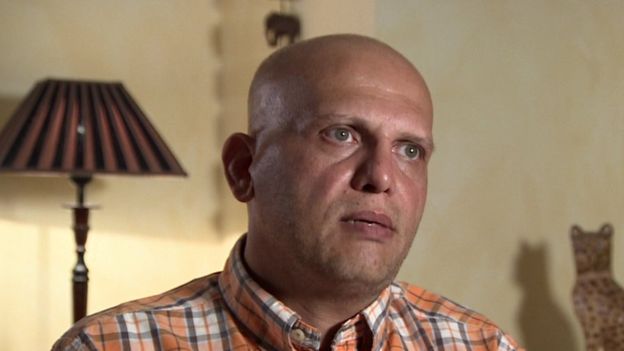
In 1993, the shrine of Imam Reza in Mashhad was bombed. A few hours later the mullahs blamed the Mojahedin for the attack. In this regard, they brought three young girls to television to say they had been tasked by the MEK for bombing. There is no information on the fate of two of the girls after this confession. Later in the case of former deputy intelligence minister Saeed Emami, it was determined that the bombings were carried out by the Ministry of Intelligence under the Emami’s supervision. Last year, former Iranian regime official Mostafa Tajzadeh explicitly confessed to a television program that bombing had been planned by the Ministry of Intelligence to lay the blame on MEK.
Saeed Malekpour, another internet activist, was among the other inmates who sat in front of the camera for forced confessions and sentenced to death. Saeed Malekpour later stated that these confessions had been under torture.
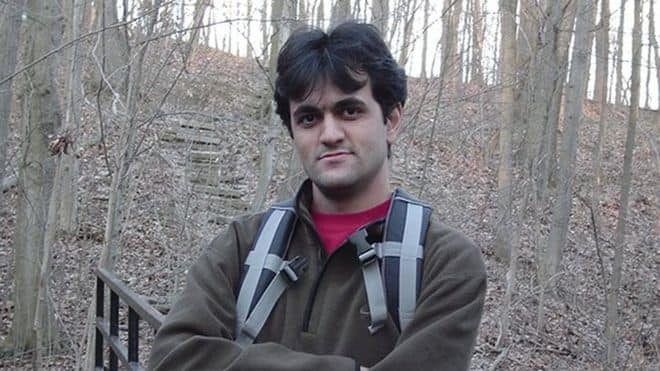
Sepideh Gholian and Ismail Bakhshi, two labor activists from the Haft Tappeh sugar mill in Khuzestan province, were detained by security forces and after a few days they were forcibly brought to TV to express their regret for taking part in the weeks-long strikes by the sugar cane workers. But both denied their charges after their release from prison and made it clear that all they had said was under pressure of torture.
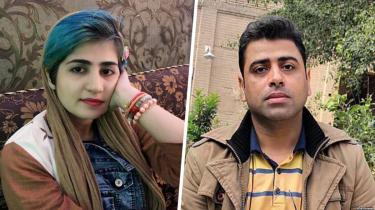
Sepideh Gholian was tried by Judge Mohammad Moghiseh at the Tehran Revolutionary Court Branch 28 on Saturday, August 10. “I was under torture during interrogation and had to confess, so I do not accept the charges,” she said at the court.
On Tuesday, October 22, 2019, the 20:30 news broadcast of the Iranian governmental television aired a confession by Fatemeh Kh, also known as Sahar Tabar, entitled “explicit about culture”.
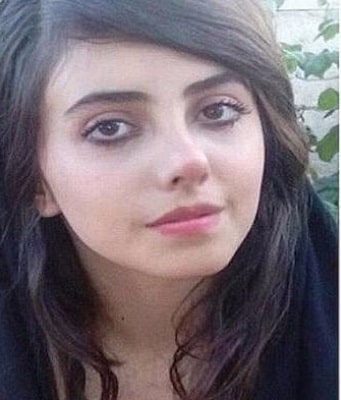
This woman, who is reportedly about 22 years old, according to Iranian media, made confessions against herself in this program. The female reporter listed her accusations as the following:
Promoting violence, blasphemy, encouraging youth for corruption, breaking the norms.
She had to apologize in front of the camera for posting her pictures on Instagram.
This is not the first time such figures on Instagram have been arrested and forced to confess.
Last year, after several dance instructors’ pages on Instagram were blocked, some of them were brought to television for “forced confessions”.
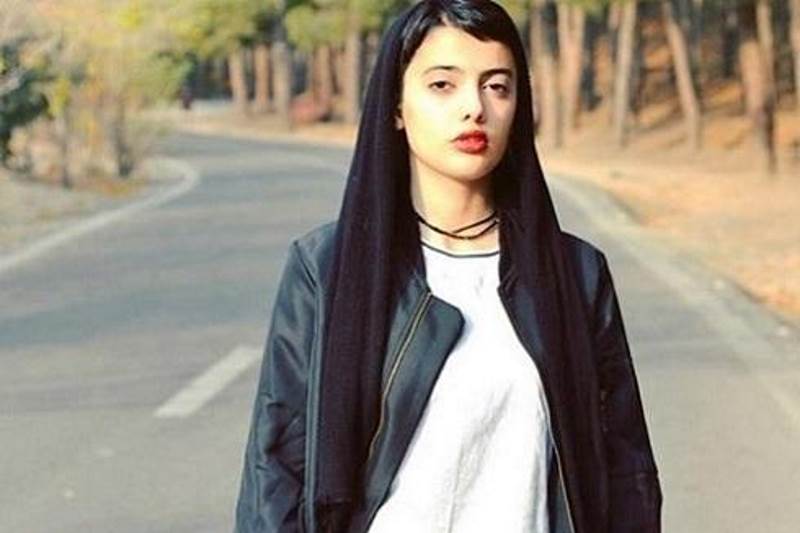
One of them is Maedeh Hozhabri , who posted clips of herself dancing on Instagram.
She was arrested by the police and detained for a while. Due to the release of her dance videos, she was forced to go on regime’s TV and apologize for releasing those films.
It is important to remember that all inmates are subjected to severe torture and are told that their sentences will be lessened or revoked if they confess and accept the charges.
Most people who have so far confessed and been released have stated that their confessions were under torture and extracted under physical and psychological pressure.
The fact is that these mullahs’ actions no longer is a solution to the crisis. Now the Iranian society is at an irreversible point. What is most understandable is that people no longer want this regime and will not be deceived by the crimes of the regime.


